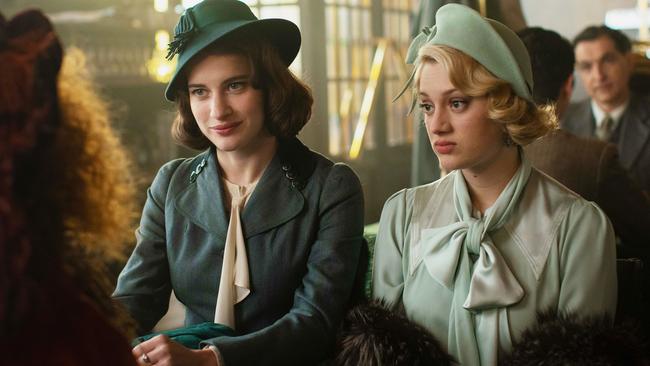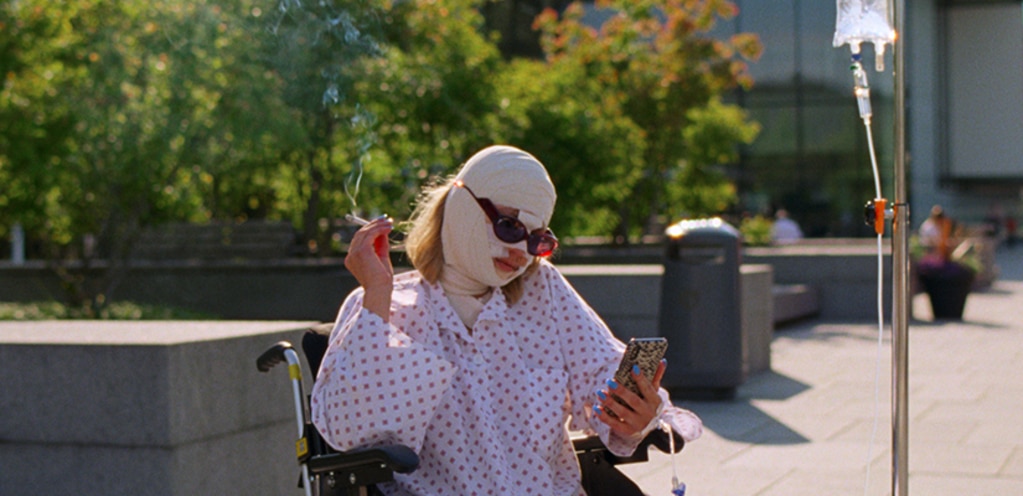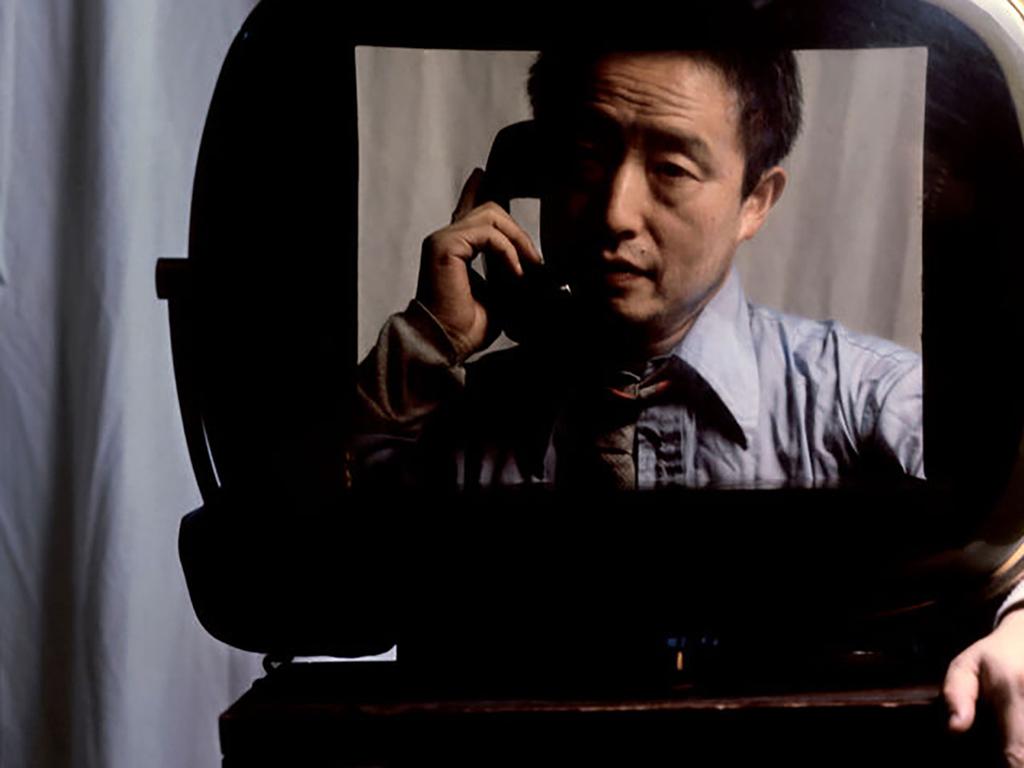The Crime is Mine, a sophisticated #MeToo comedy
An unsuccessful actor is behind in rent when she is invited to the home of a powerful movie mogul, who turns out to be a producer who hews to the predatory Harvey Weinstein casting couch school.

The Crime is Mine (Mon crime) (M)
In cinemas
★★★★
The latest film from the prolific and talented François Ozon, The Crime is Mine/Mon crime, is based on a play with the same French title written in 1934 by Georges Berr and Louis Verneuil. The play has already been filmed twice before, both times in Hollywood; first there was the very amiable True Confession (1937), directed by Wesley Ruggles with Carole Lombard, Fred MacMurray and John Barrymore, and later the rather less successful Cross My Heart (1946), directed by John Berry, with Betty Hutton and Sonny Tufts.
Ozon is the perfect director to make the first French film version of the play; his work until now has been eclectic but always rewarding and ranges from dramas, like Swimming Pool (2003), to comedy (8 Women, 2002). The film he made immediately prior to Mon crime, which sadly has not yet appeared in Australian cinemas, was Peter von Kant (2002), a bold adaptation of Rainer Werner Fassbinder’s lesbian melodrama The Bitter Tears of Petra von Kant, with the sexes changed from women to men.
His new film is scrupulously set in the year that the play was first performed, 1934: at one stage his protagonists go to the cinema to see Mauvaise graine (Bad Seed), the first film directed by the great Billy Wilder, which was released that year. And the first thing to note about the film is that the production and costume design are outstanding.
So is the entire ensemble cast. Nadia Tereszkiewicz plays Madeleine Verdier, a not-very-successful actor who shares a cheap apartment with her friend, Pauline Mauleon (Rebecca Marder), who has recently graduated in law. The young women are way behind with the rent when Madeleine is invited to the home of powerful movie mogul Montferrand (Jean-Christophe Bouvet) who turns out to be the sort of producer who hews to the predatory Harvey Weinstein casting couch school. Madeleine flees from the clutches of this odious character who is shortly afterwards found with a bullet in his head.
Suspicion naturally falls on Madeleine and the investigating judge, Gustave Radusset – the wonderful Fabrice Luchini – becomes totally convinced of her guilt. In court, Madeleine is defended by Pauline, and pleads guilty while claiming that she was protecting her honour. Celebrity status follows – she gets roles in a film (The Bitter Tears of Marie Antoinette) and a play (Suzanne’s Chagrin) – but there’s an unexpected twist with the belated arrival of Odette Chaumette, a former star of silent movies (“Silent cinema’s most expressive eyes” someone says of her). Odette is a wonderfully over-the-top character superbly played by Isabelle Huppert wearing some strikingly outrageous costumes.
The film is witty and smart and contains a few surprises along the way. No wonder the play has provided material for three, rather different, films to date; it’s ingenious and, as it happens, extraordinarily timely as it taps into the #MeToo movement.
Ozon proves once again that he’s a master of sophisticated comedy laced with irony and drama. This is one of his most engaging films.
Lie with me (Arrête avec tes mensonges) (MA 15+)
In cinemas
★★★½
For a long time I’ve held the suspicion that somewhere in Paris there’s a small windowless office in which a minor functionary spends his or her time dreaming up totally inappropriate English titles for French novels and films. How, for example, does Arrête avec tes mensonges – literally Stop with your Lies – become transformed into Lie with Me? It’s silly and an insult to a good film, but this was also the title given to the English language publication of Philippe Besson’s 2017 novel and the peculiar and inaccurate “translation” has been used for the film version.
There are elements of Ang Lee’s fine film Brokeback Mountain (2005) in this sensitive tale of long-lost love. Gay author Stephane Belcourt (Guillaume de Tonquedec), a rather repressed character, accepts an invitation to visit his hometown of Cognac, a place he has avoided for 35 years. His sponsor is a luxury Cognac label, which is ironic because he doesn’t drink. He has agreed to promote his latest book, give an address at an official dinner, participate in book signings and to be interviewed by the local press.
He is welcomed by his minder, the garrulous Gaelle Flamand (Guilaine Londez) who, he discovers, is not as shallow as she initially appears to be. Flamand gives a strong performance. But almost as soon as he arrives his eye is caught by Lucas Andrieu (Victor Belmondo, the charismatic grandson of the iconic Jean-Paul Belmondo who at times looks remarkably like his granddad at the time of Godard’s A bout de souffle / Breathless, 1960). Lucas is a young man employed by the Cognac company and currently engaged in guiding a party of Americans around the area. No wonder Lucas looks familiar to Stephane – he is the son of Thomas, Stephane’s first love.
Much of the film consists of flashbacks to 1984, when 17-year-old Stephane (Jeremy Gillet), shy and inexperienced, begins a clandestine relationship with the more mature but very secretive Thomas (Julien De Saint Jean). These sequences are intercut with contemporary scenes in which the powerful and still rather painful memories come flooding back to Stephane.
This is autobiographical material and it resonates strongly. Co-writer and director Olivier Peyon handles the sad little story with tact and intimacy and there are first class performances in every role.
It’s true that the basic theme – a character haunted by vivid memories of his first love that ended badly – isn’t exactly original, but when told as tenderly as it is here the material remains timeless.






To join the conversation, please log in. Don't have an account? Register
Join the conversation, you are commenting as Logout